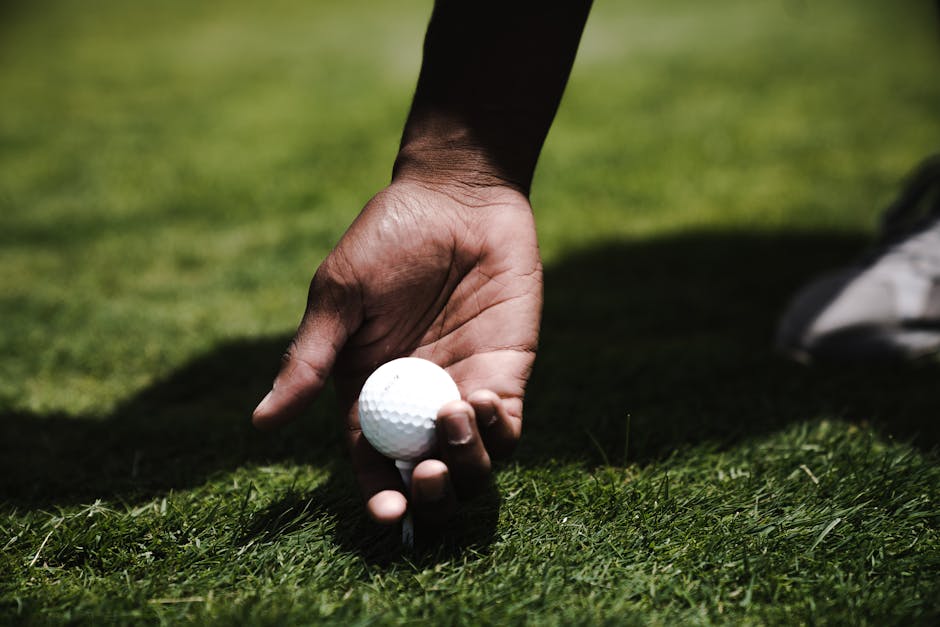From Novice to Golfer: Unlocking the Basics of Golf Play
Embarking on the journey from a novice to a seasoned golfer involves understanding core principles, mastering the basic techniques, and adhering to the sport’s etiquette. This guide provides essential insights for beginners eager to step up their game and enjoy the enriching experience of golf.
Understanding Golf Fundamentals
Golf is a sport of precision and tactics, revolving around striking a ball into a series of holes with the least number of strokes possible. For those new to golf, grasping the basic concepts is paramount:
- The Course: A standard golf course features 18 holes, each with varying degrees of difficulty.
- Equipment: Essential gear includes golf clubs, balls, a tee, and appropriate attire.
- Objective: The main goal in golf is to complete each hole with the fewest strokes.
Perfecting Your Technique
Improving your golfing technique is crucial for progression. Here’s how to refine essential skills:
Grip and Stance
The foundation of a good golf swing starts with a correct grip and a stable stance. Ensure your grip is neither too tight nor too loose and align your body parallel to the target line, with feet shoulder-width apart.
Swing Mechanics
The golf swing is divided into several stages: the backswing, the downswing, the impact, and the follow-through. Each stage plays a critical role in directing and powering the ball accurately. Beginners are advised to practice their swing regularly and consider lessons from a professional to enhance their mechanics.
Video tutorials and practicing with more experienced golfers can also accelerate your learning curve. Remember, consistency in your swing will lead to better control and lower scores.
Golf Etiquette
Understanding and practicing golf etiquette not only shows respect for the game and other players but also enhances your overall experience on the course:
- Pace of Play: Be ready to take your shot when it’s your turn. This helps in maintaining a good pace and reduces delays.
- Safety: Always be aware of your surroundings, ensuring no one is in range when you swing.
- Respect: Be respectful of fellow players’ concentration and silence during their shots and while in competition.
- Care for the Course: Repair any divots or marks you make on the greens and rake sand bunkers after passing through them to keep the course in good condition for everyone.
Choosing the Right Equipment
Selecting appropriate golf equipment is essential, not only to comply with the regulations but also to enhance your performance:
- Golf Clubs: Beginners should start with a basic set of clubs, including drivers, irons, wedges, and a putter.
- Golf Balls: Various types of golf balls are available, tailored to different skill levels and styles of play. Beginners might opt for balls that prioritize durability and control.
- Attire: While specific dress codes can vary by course, it is generally acceptable to wear a polo shirt, golf shoes, and trousers or shorts designed for golf.
Frequently Asked Questions (FAQ)
How often should a beginner practice golf?
To significantly improve your golf skills, regular practice is essential. Aim for at least two practice sessions per week, focusing on different aspects of your game.
Is it expensive to start playing golf?
Golf can be an expensive sport, but there are budget-friendly options for beginners. Consider second-hand clubs, public courses with lower green fees, and group lessons to reduce costs.
Can golf be self-taught?
While many golfers learn through self-teaching, guidance from experienced players or professionals can drastically improve your learning curve and help avoid common pitfalls.
Embarking on your golf journey requires patience, practice, and a deep understanding of the basics. By starting with these fundamentals, you will enhance your enjoyment and capability in the sport, paving the way from a novice to a proficient golfer. Embrace the challenge and enjoy your progression on the greens!
